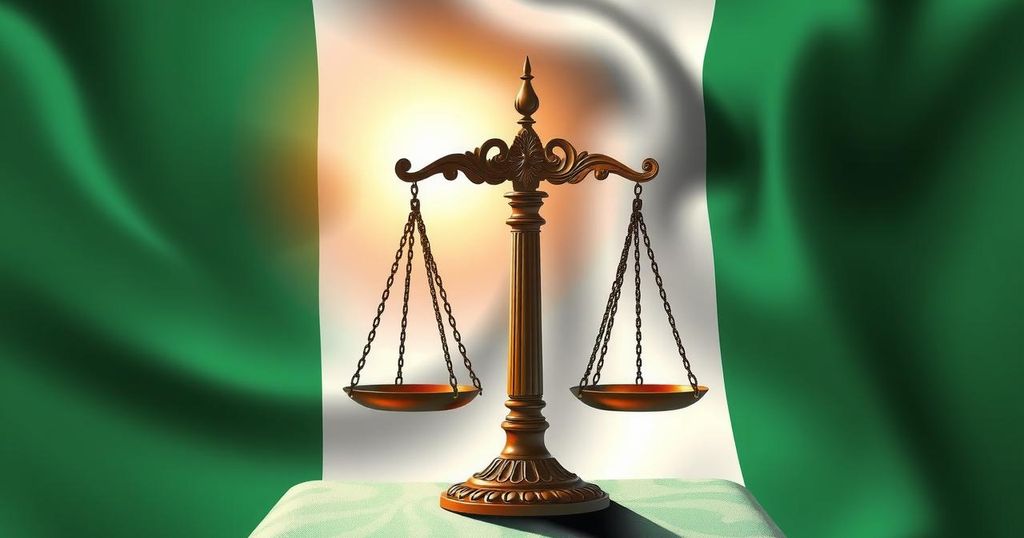Sir Ifeanyi Ejiofor calls for the Ndigbo to reflect as Nigeria marks 25 years of democracy. He stresses that democracy should respond to the marginalized, not just the elite. He questions whether the Igbo community truly benefits from current governance, emphasizing the need for active participation and a reclamation of dignity within the democratic framework.
As Nigeria marks 25 years of democracy, human rights lawyer and counsel for the Indigenous People of Biafra, Sir Ifeanyi Ejiofor, is urging the Igbo community to reflect on the nation’s journey since the return to civil rule. He’s called for a profound reckoning, saying this is a moment for the Ndigbo to rethink, reawaken, and reconnect with the vision for justice and representation in Nigeria, especially as the Tinubu administration has just wrapped up its second year.
In a statement he released, Ejiofor argued that democracy should go beyond mere slogans and elections. Instead, it must genuinely respond to the plight of the marginalized and oppressed. He pointed out the concerning reality that those elected to protect citizens often end up being instruments of suppression, making the populace feel unsafe and unprotected. He believes that Nigeria’s potential can’t be fully realized while vibrant communities like the Ndigbo are marginalized.
Ejiofor did not mince words, stressing that this is no time for complacency. He emphasized the need for the Igbo people to actively reclaim their dignity in a peaceful and lawful manner. “As Nigeria marks 25 years of uninterrupted civil rule…we must look beyond official ceremonies and scripted rhetoric,” he said. He specifically noted that for the Biafran people, this moment should inspire deep reflection rather than celebration.
He raised several critical questions about the state of democracy for the Igbo. Do the fruits of democracy genuinely benefit Alaigbo? Are communities in the South-East being empowered or subjected to military actions? With ever-increasing fuel prices and economic hardship, he asked whether Biafrans are thriving or simply struggling to survive.
Ejiofor highlighted that all around the South-East—from Orlu to Aba, Enugu to Nnewi—the people face state-sponsored violence and insecurity. He framed peace as an elusive privilege rather than a guaranteed right, pointing out that those meant to safeguard the populace are often the source of fear. He urged a collective acknowledgment that democracy should equally serve all nations within Nigeria, rejecting the notion of a hierarchy where one region dominates.
In his reflection, he reiterated, “Can there be unity without justice? Can there be peace without truth?” He insisted that democracy should fundamentally address the aspirations of marginalized groups rather than merely cater to the elite. Ejiofor made it clear that democracy should grant every community—and especially Biafrans—the right to express themselves and determine their futures freely.
The call to action was firm: the Igbo must amplify their values while ensuring that future generations do not inherit a legacy of oppression. “Democracy, like freedom, dies in fear—and thrives in truth,” he proclaimed. Ejiofor further noted that Nigeria must not push its vibrant communities down but instead must encourage their success.
In closing, he reminded everyone that to honor the memory of June 12—a day significant in Nigeria’s democratic history—is to stand against silence and demand equality. The voice of Biafra should remain a critical part of Nigeria’s future, and the journey toward true democracy and self-determination is ongoing, not by chance but by choice.
Sir Ifeanyi Ejiofor’s reflections highlight profound concerns regarding the state of democracy in Nigeria, particularly for the Igbo. He urges the need for unity, justice, and active participation to ensure the marginalized voices are heard. Now is a critical time for reflection, advocacy, and reclaiming dignity in the political landscape, aiming for a future where democracy serves all rather than a select few. The journey toward inclusivity and justice continues, as Ejiofor passionately advocates for the Biafran cause and broader societal reform.
Original Source: punchng.com






